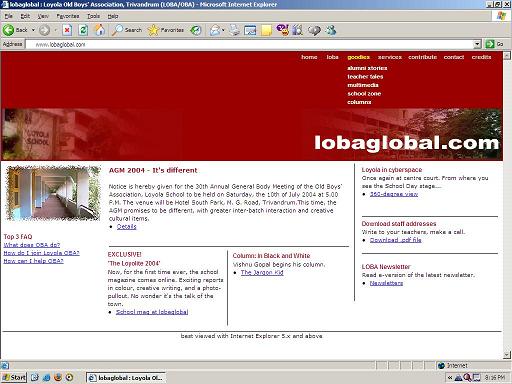By Ashok R. Chandran
The New Indian Express (Thiruvananthapuram)
DR ASHOK HAS rightly highlighted the need for value addition at the workplace and a more trade-friendly Kerala in today’s globalised economy. Even if one does not share his ‘end of ideology’ perspective of contemporary international order or his technology-centred diagnosis of Kerala’s economic backwardness, none can dispute his argument that the maladjusted Malayali intellectual (withdrawing into ‘ideological refugeeship’) has offered an inadequate response to Kerala’s developmental concerns.
Yet, even as we revel in bashing Malayali intellectuals, especially literary emperors who pose as fountains of economic intellect, we must not fail to observe that the state of the State has its roots, not in irrelevant intellectuals strutting from stage to stage, (or in ‘paranoid opposition to technology’) but in the mental map of the Malayali. The Keralite—be he an intellectual or a humbler mortal—is running scared of the ‘market’, probably (and fully justified if you ask me) because of the uncertainty and insecurity that come attached.
Call it globalisation, capitalism, or the market, this ‘ruthless’ alternative will ask the Malayali to work well to earn well. Of course, the Malayali, notably in other lands, has demonstrated that he can handle competition, accountability and uncertainty. But, as long as it lasts, if you can earn well without working well, if you can enjoy life without worrying about next year’s salary, why, it is very heaven…er…God’s Own Country.
Instead of trying to resist the market, if the Malayali plays in the market—by competing to offer a better product or service—Kerala can succeed with creativity and hard work, and without intellectuals.
Ignore economists. Can a region develop if the workplace does not reward those who work well? How long can a man work if he is not meeting the needs of a customer? Instead of trying to resist the market, if the Malayali plays in the market—by competing to offer a better product or service—Kerala can succeed with creativity and hard work, and without intellectuals.
The problem with Kerala’s learned men is that they—including Mr Justice, Dr Scientist, and Prof. Litterateur—driven by their disdain for the market, unwittingly end up as cheerleaders for the lazy, the corrupt and vested interests in a patronage-based system. Is it because they, having spent a good part of their lives drawing from the Treasury, have never had to bother about competition and accountability? Or is it because these feted icons have never had to beg the attendant at the nearby government hospital to push the stretcher trolley to save a dear one’s life?
Ah! Yes! The development primer. Since Kerala’s intellectuals appear proficient in theory, can we have it in DPEP style, please? Lesson 1: A Visit to the Hospital.
Extra
Dr B. Ashok’s article (.pdf)
Credits: Stock photo by Braden Collum on Unsplash




